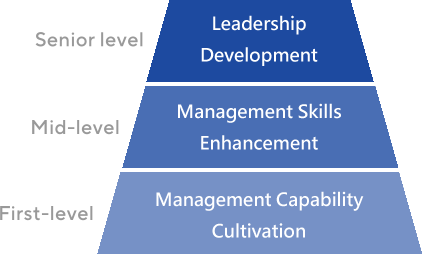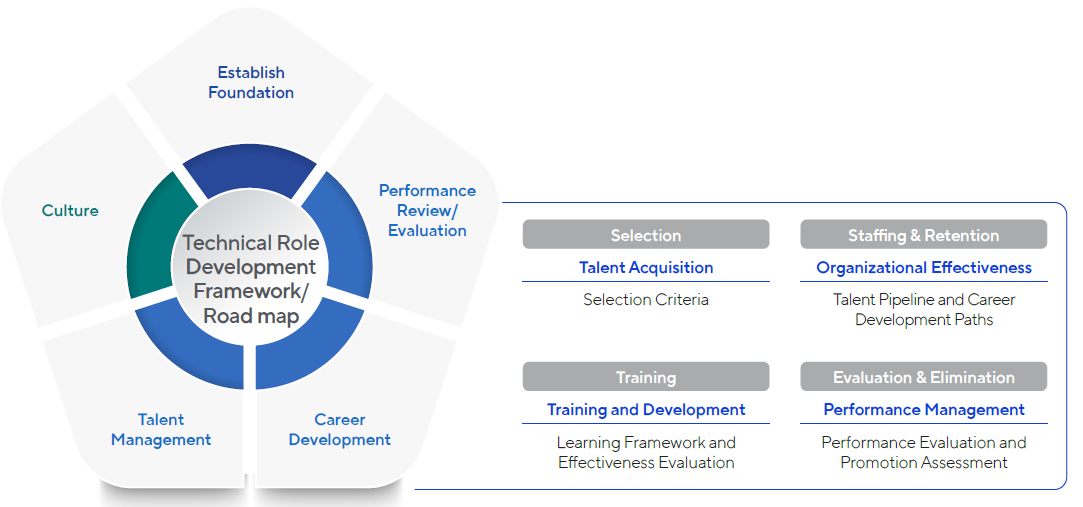Performance
Winner of the Talent Development Leadership Award at the Taiwan Corporate Sustainability Awards (TCSA).
>100
employeesMore than 100 employees have become global professional managers through the Global Talent Program.
1544
employeesKey Strategic Project-Design Thinking Talent Cultivation Project: 1,544 employees completed in 2024.

Employee Training Courses
ASUS’s talent development programs cover all full-time employees (16,631 employees by the end of 2024). The total training hours amounted to 447,759, with an average of 26.9 hours per employee. The average training investment per employee was NT$2,871, including training costs and talent development incentives.
447759
hrsThe total training hours in global operating centers were 447,759 hours
26.9
hrsThe average training hours per person were 26.9 hours.
Talent Cultivation and Development Framework
Linking the corporate culture, core values and global strategies, the Talent Development System is divided into three dimentions, including "core values", "management leadership" and "professional skills". We provide various training courses and digital self-learning resources for senior-level, mid-level, first-level managers and general employees to foster diverse talents.
Management Roles
Take responsibility for organization and personnel management

Professional Roles
Focus on technical and professional contributions
Research and Development
Sales/Marketing
Engineering Technology
Management Support
Core Competitiveness
Newcomer Training
Program
ASUS Cultural
Program
Work Master
Program
Dr. ASUS Internal Lecturer
Program
Design Thinking
Program
Technical/Functional Competency Committees
To address the challenges posed by organizational growth momentum, ASUS has progressively established various Technical/Functional Committees. These committees aim to build domain-specific expertise and knowledge, which are then applied across human resources practices—such as talent selection and recruitment, organizational effectiveness, performance management, and training and development. This framework advances the development and deepening of professional roles, enabling high-performing employees to maximize their strengths and continue contributing in their current positions. It not only enhances the significance and value of professional roles within their fields but also serves as a career development pathway for future cross-functional rotations of top talent.

Key Achievements in 2024
- Establishment of Technical/Functional Committees: ASUS established the Hardware Technical/Functional Committee and the Customer Service Technical/Functional Committee to define professional capabilities and competency standards in their respective fields. By the end of 2024, approximately 100 employees served as committee members, of which 67 percent were mid- to senior-level managers.
- Annual Professional Competency Review Committee: Professional employees participated in the annual Professional Competency Review Committee, engaging in project discussions with subject matter experts. These experts provided feedback, development recommendations, and competency recognition. More than 90 percent of participants expressed high satisfaction with the process.
- Application of Competency Standards to Development Goals: Professional employees in the fields of mechanical, thermal, and design applied the competency standards to their individual professional development goals. These standards helped managers and employees jointly set specific, measurable development objectives, effectively supporting continued skill advancement and growth.

Employee Developing Projects
Learn more

